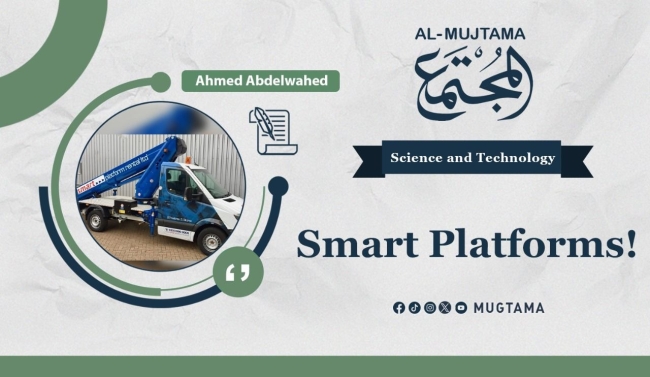No one could have imagined that the cane of the martyr Yahya Sinwar would become a global icon, or that a video clip, just a few minutes long, in which he expressed his wish to die by an "Apache," would invade social media platforms. Nor could they have imagined that his just cause would dominate trends for over a year, as if he possessed the platforms of the world, addressing people with actions, not mere words, and through jihad, not idleness.
These are the platforms of the 21st century: a video, a sound clip, an image, a post, a cartoon, or a moment of sincerity and devotion that can achieve more than a thousand messengers, stronger than a thousand cannons, and more destructive than a thousand missiles. They may even accomplish what nations and peoples cannot, or what media network owners and executives plan for years.
The reality confirms that new tools and methods have imposed themselves on the map of platforms in a world brimming daily with innovations in visual, auditory, written, and electronic media, amidst rapid technological and communication advancements. This has turned the world into a small village and transformed a small handheld phone into heavy artillery, one that demands serious consideration.
I recall how a three-line post I wrote on my personal Facebook page turned into a research study project, which soon developed into a book that traveled to exhibitions worldwide. This strengthened my conviction that each of us holds a true platform in their hands, capable of planting, nurturing, producing, transforming, and reforming, even leading others toward the better. The words and cane of Sinwar are vivid examples of this.
It is a mistake to underestimate the impact of a video, an image, a message, a hashtag, or a trend. Social media platforms have become a powerful podium attracting people from all over the world—more than 5 billion users, representing 62.3% of the global population, according to data from the digital consultancy "Kepios" in 2023.
Within seconds, applications like Facebook, WhatsApp, Instagram, Twitter, Telegram, WeChat, TikTok, and Douyin can reach millions globally, penetrate all classes, demographics, and nationalities, and transcend geographical, historical, and religious boundaries.
Tools for Advocacy
You hold a platform in your hand: your smartphone. You can make it a means of advocacy, a mobile Quran, or an archive containing the sayings of the Messenger of Allah (ﷺ). You can remind whoever you wish of the best words, spread good speech, wake your friends for Fajr prayer, or deliver admonitions for any occasion by utilizing sites dedicated to sermons and lectures. Through various apps, your phone can serve as a prayer caller, a reader for dhikr, or a reminder of good deeds and acts of worship.
Through social media, if intentions are sincere, one can make their pages active platforms to spread all that benefits people, advising them to do good, enjoining what is right, and forbidding what is wrong. One can utilize live streaming to broadcast purposeful events and noble acts, alongside shorts, audio spaces, and podcasts, transforming them into virtual mosques over the internet.
Indeed, some have succeeded in using programs like Zoom as a platform for Quran memorization circles, even electronic schools for studying Islamic sciences in various foreign languages. Influencers now teach the Quran to people in the West, introduce non-Arabic speakers to the Arabic language, spread Islam among Europeans, or convey Islamic values to the Americas as if they were ambassadors of Islam.
Similarly, others have utilized TikTok to produce meaningful content, launched YouTube channels dedicated to religion, education, and promoting virtue, or opened doors for consultations and fatwas via digital apps. They have created extensive scholarly and jurisprudential libraries online, providing access to seminal books on Tafsir, Fiqh, Hadith, biographies, and heritage for those in need.
Using artificial intelligence, a specialized preacher has been introduced to dialogue with non-Muslims, addressing their inquiries about Islam, refuting misconceptions, and conducting multilingual discussions. This intelligent platform serves as a modern ambassador, spreading Islam to the far corners of the earth.
Months ago, an Iranian teacher successfully developed a robot to teach primary school students how to perform prayer and recite the Quran. This engaging experiment attracted and impressed children, even correcting their prayer performance, according to the Associated Press.
In Japan, researchers have developed a robotic monk that offers Buddhist teachings and provides direct answers via social media. This innovation aims to reignite the Japanese people's passion for their religious identity and address their spiritual and moral issues through a device combining science and religion.
Digitizing advocacy has become an inevitable reality, given people's growing reliance on social media, youth's obsession with smartphones, and technology's overwhelming influence on every aspect of life. This compels us to adapt these technologies to serve Islam, employing artificial intelligence in calling to Allah. This does not mean abandoning traditional platforms, which remain valuable. Instead, it calls for their enhancement, mobilizing AI experts to support preachers and provide them with tools in the battles against globalization, atheism, cultural invasion, immorality, and other challenges, to bring humanity from darkness into light.
-------------------------------------------------------------


